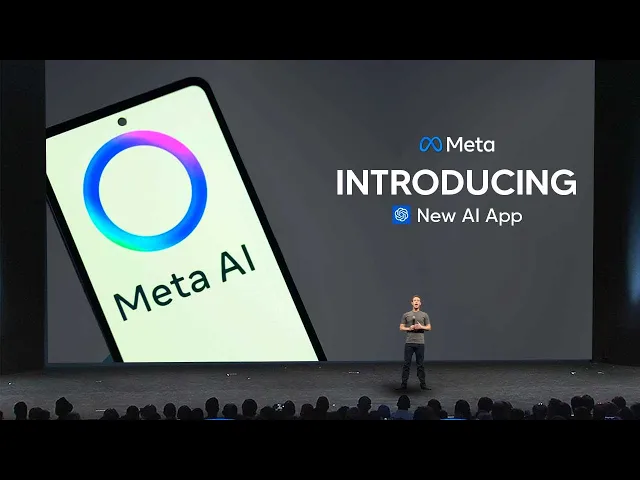Metas New AI App Is Set To Rival ChatGPT – Your new personal assistant

Meta's AI app challenges ChatGPT's reign
In a bold move that signals the intensification of the AI assistant wars, Meta has launched a standalone AI application poised to reshape how we interact with artificial intelligence in our daily lives. Mark Zuckerberg's latest creation aims to become your "personal AI" by leveraging Meta's massive social media infrastructure and introducing features that make AI interactions more natural, memorable, and integrated with your digital existence.
Key Points
- Personalized memory capabilities allow the AI to remember important details about your life, from children's names to significant dates, creating deeper and more nuanced conversations that improve with time
- Voice-first "full duplex" technology enables natural back-and-forth conversations where the AI can interrupt, laugh, and respond like a human on a phone call, moving beyond the rigid query-response model
- Social discovery features let users share AI-generated content and view others' creations, tapping into Meta's strength as a social media company and creating a community of AI users
- Seamless integration with Ray-Ban smart glasses positions Meta uniquely at the intersection of AI and wearable technology, providing a glimpse into Zuckerberg's vision of glasses becoming the primary computing platform
The Memory Advantage
The most compelling aspect of Meta's approach is their focus on memory. Unlike many current AI assistants that treat each conversation as isolated, Meta's AI remembers your preferences, history, and personal details. This creates a subtle but powerful lock-in effect – the longer you use their AI, the more it knows about you, and the more valuable it becomes.
This strategic implementation of memory doesn't just improve user experience; it's a brilliant competitive moat. As users invest time sharing personal context with Meta's AI, the switching cost to competing platforms increases dramatically. Similar to how ecosystem lock-in works between iOS and Android users, Meta is betting that once you've trained their AI to understand your life, you'll be reluctant to start over elsewhere. In the emerging AI assistant landscape, this could prove to be the most significant differentiation strategy.
Beyond The Transcript: Implications For Business Users
For business professionals, Meta's approach to AI represents more than just another chatbot option. The social discovery features create entirely new possibilities for collaborative AI use within organizations. Imagine
Recent Videos
How To Earn MONEY With Images (No Bullsh*t)
Smart earnings from your image collection In today's digital economy, passive income streams have become increasingly accessible to creators with various skill sets. A recent YouTube video cuts through the hype to explore legitimate ways photographers, designers, and even casual smartphone users can monetize their image collections. The strategies outlined don't rely on unrealistic promises or complicated schemes—instead, they focus on established marketplaces with proven revenue potential for image creators. Key Points Stock photography platforms like Shutterstock, Adobe Stock, and Getty Images remain viable income sources when you understand their specific requirements and optimize your submissions accordingly. Specialized marketplaces focusing...
Oct 3, 2025New SHAPE SHIFTING AI Robot Is Freaking People Out
Liquid robots will change everything In the quiet labs of Carnegie Mellon University, scientists have created something that feels plucked from science fiction—a magnetic slime robot that can transform between liquid and solid states, slipping through tight spaces before reassembling on the other side. This technology, showcased in a recent YouTube video, represents a significant leap beyond traditional robotics into a realm where machines mimic not just animal movements, but their fundamental physical properties. While the internet might be buzzing with dystopian concerns about "shape-shifting terminators," the reality offers far more promising applications that could revolutionize medicine, rescue operations, and...
Oct 3, 2025How To Do Homeless AI Tiktok Trend (Tiktok Homeless AI Tutorial)
AI homeless trend raises ethical concerns In an era where social media trends evolve faster than we can comprehend them, TikTok's "homeless AI" trend has sparked both creative engagement and serious ethical questions. The trend, which involves using AI to transform ordinary photos into images depicting homelessness, has rapidly gained traction across the platform, with creators eagerly jumping on board to showcase their digital transformations. While the technical process is relatively straightforward, the implications of digitally "becoming homeless" for entertainment deserve careful consideration. The video tutorial provides a step-by-step guide on creating these AI-generated images, explaining how users can transform...
